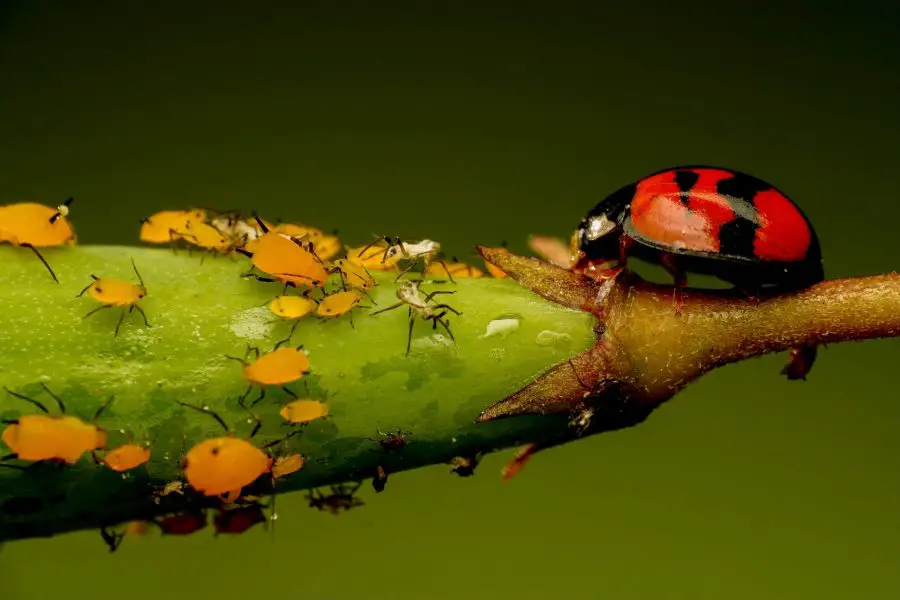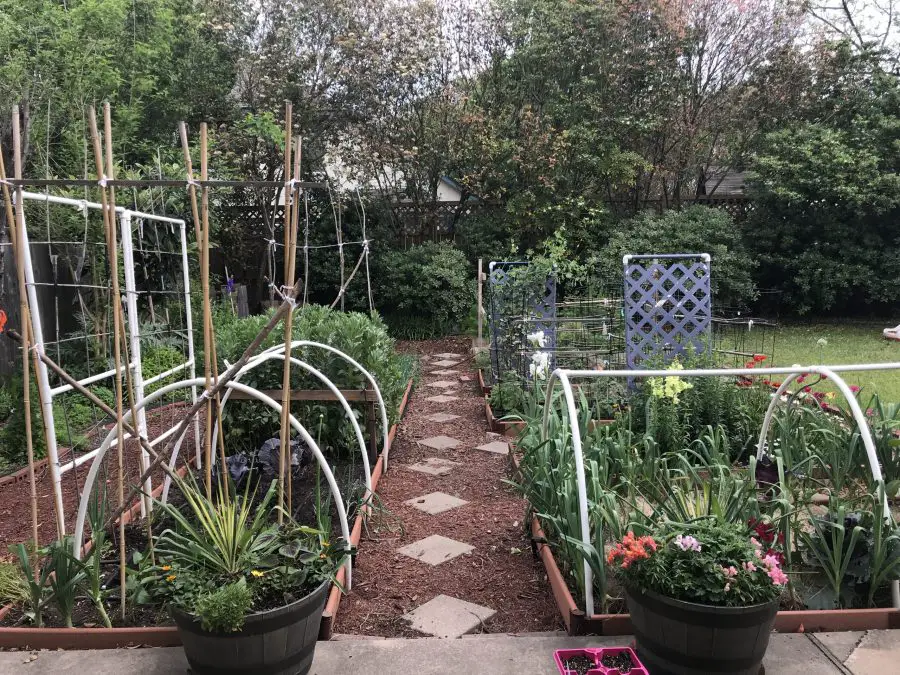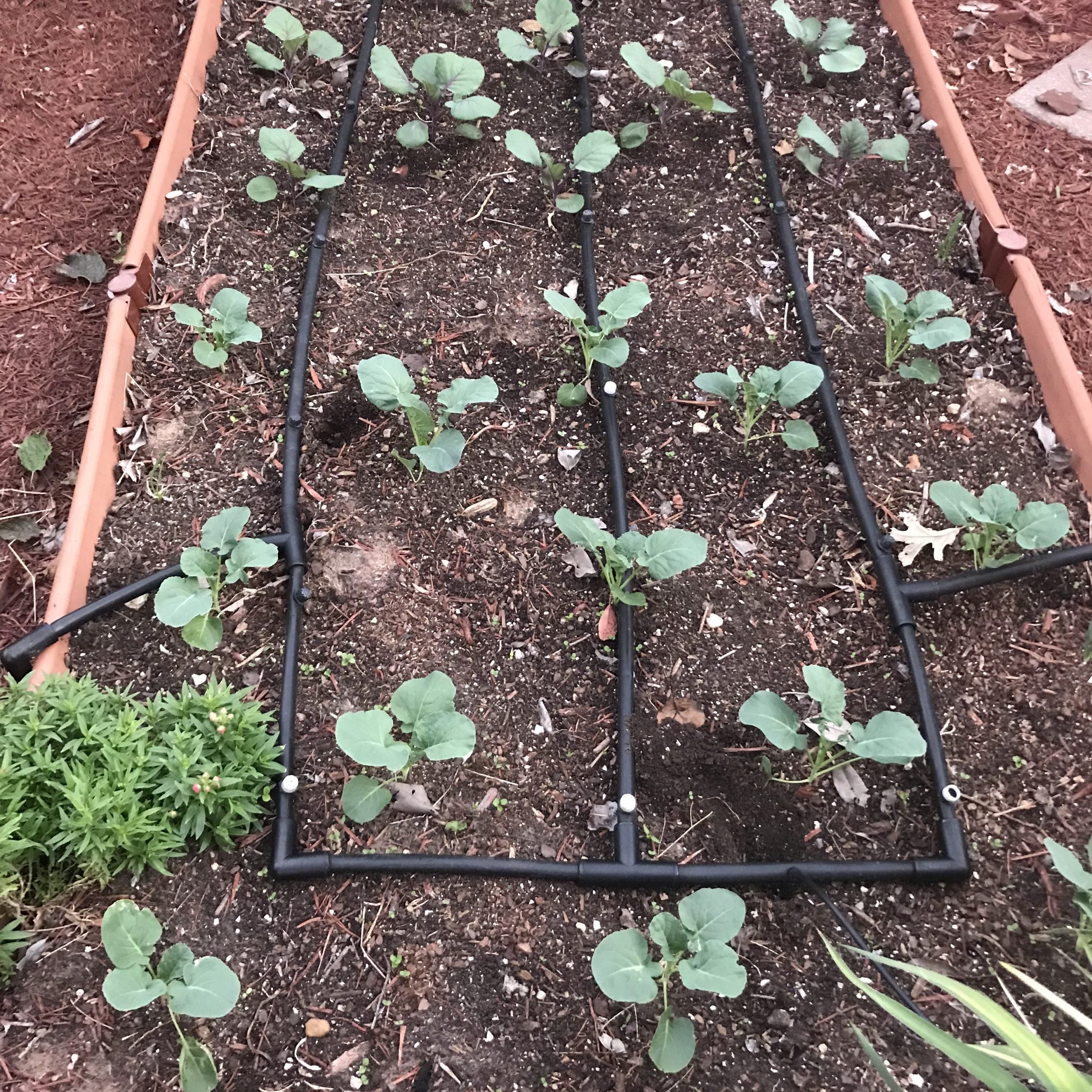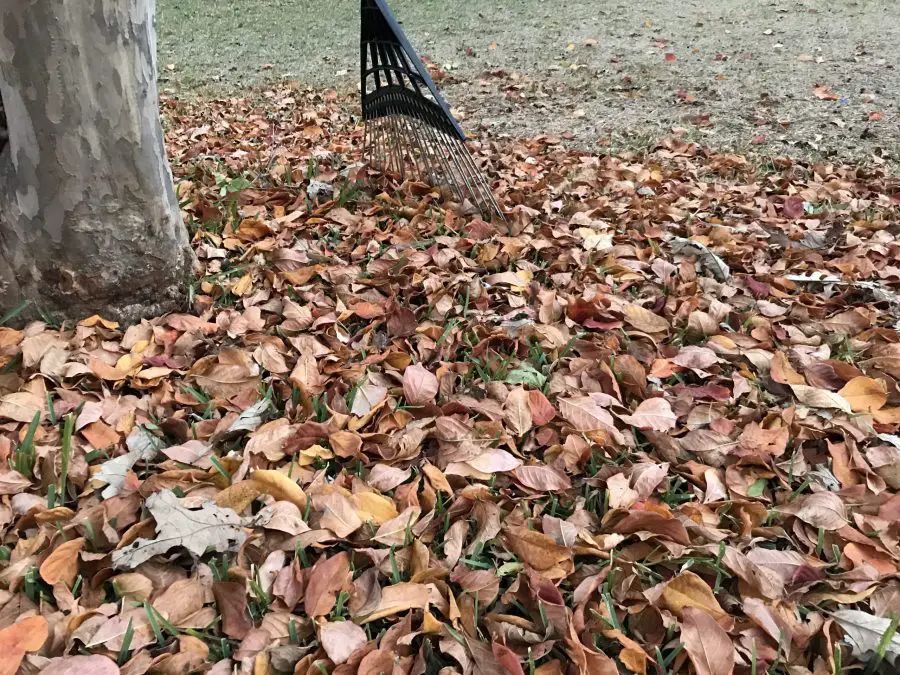Aphids top the list of summer garden pests. They can cause severe damage to host plants, weakening them and reducing production. Gardeners have difficulty controlling them once an infestation sets foot in the garden. Let’s go step by step and learn how to deal with aphids in the garden and maybe get rid of them.
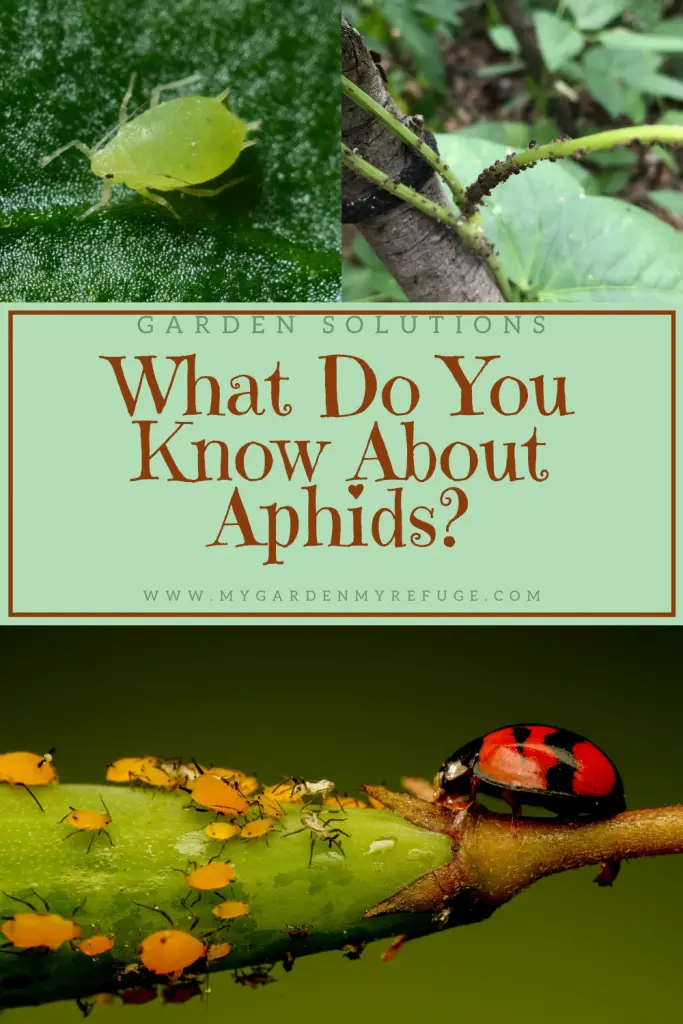
What are aphids?
Aphids are soft-bodied and pear-shaped insects that feed on the sap of a host plant. They are small, but some may be as big as a grain of rice. Several species of aphids are named according to their host, such as cabbage aphids, bean aphids, green peach aphids, and so on. They also come in black, grey, green, or yellow colors.
A female aphid can lay eggs without mating, which shortens the adult life and increases reproduction. Most aphids are wingless, but when food becomes scarce winged aphids emerge.
Summer is the peak season for aphids. When fall arrives and the days get shorter, mating starts taking place. Fertile eggs are laid to overwinter and emerge in the following spring.
How to identify aphids?
It is vital to inspect your garden daily to keep aphids from taking hold of it. The most common sign of aphid presence is new growth deformity and stunted plant. Take a closer look at the tips and the new buds, where aphids tend to congregate.
The population multiplies and spreads all over the plant at record speed. When an infestation is in place, a sticky substance called honeydew appears on the foliage. Unfortunately, it is appetizing to ants, so it causes more pest problems.
Another significant problem caused by aphids is sooty mold, which looks like a black substance covering the leaf’s surface. Gardeners usually bypass this mold until it spreads and causes significant damage. It forms a sunblock that inhibits plant cells from producing food through photosynthesis.
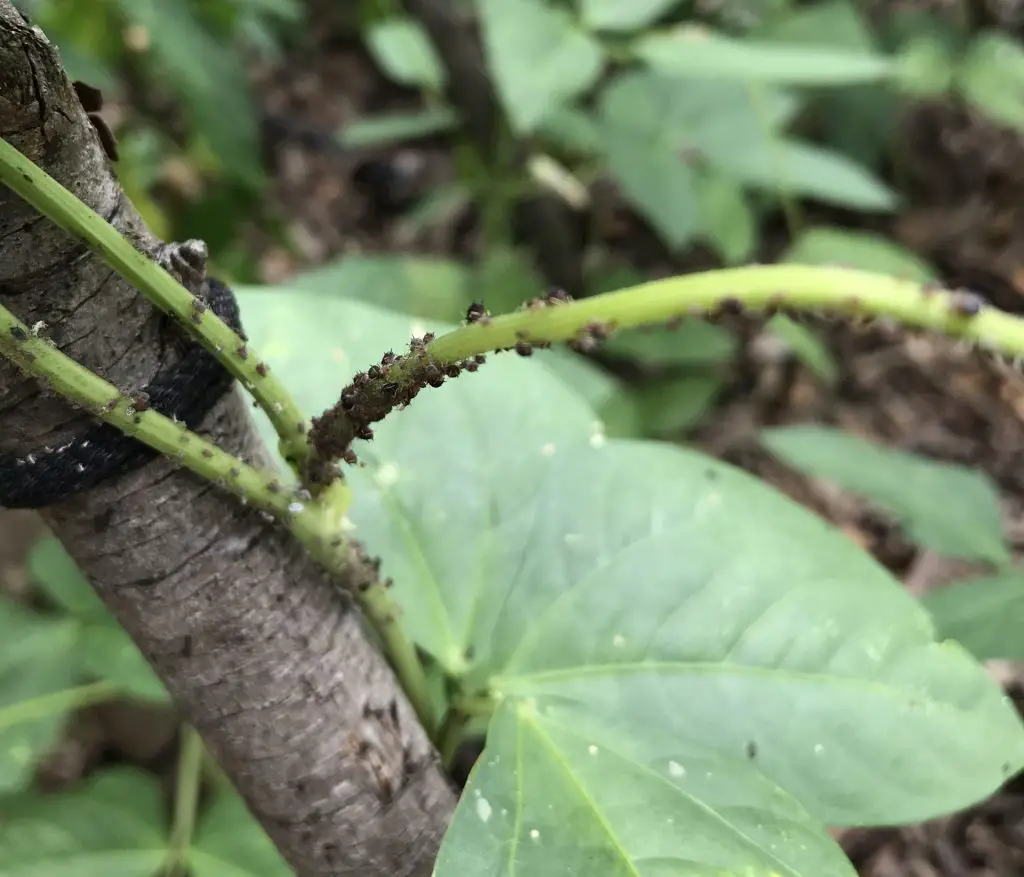
What causes an aphid infestation?
In general, pests target weak and vulnerable plants. As a first step to prevent any pest infestation, use healthy plants and minimize exposing them to stress factors. The environmentally-stressed plant produces a chemical called Glutathione as part of its defense mechanism. Surprisingly, this chemical is beneficial to some insects, including aphids.
Some other factors that promote aphid infestation are:
- High nitrogen content in the soil due to excessive use of fertilizers encourages tender green growth, providing more food to aphids.
- Low light conditions and water stress weaken plants, making them favorable hosts for aphids.
- Random use of chemical pesticides to control other pests may also harm aphid predators.
- Usually, the aphid population explodes in early spring before the emergence of its natural predators.
How to control aphids in the garden?
The best pest control of any pest or disease begins with prevention. Apply proper gardening practices and avoid creating a favorable environment for the pest.
Prevention
- Test soil before applying any fertilizer. A higher concentration of a nutrient, especially nitrogen, is more difficult to rectify than its deficiency.
- Provide each plant its proper growing conditions, including sunlight, water, and soil quality.
- Avoid using weak and stunted plants.
- Pick infected foliage immediately and squash the bugs before discarding them in the trash.
- Regular inspection is vital to identify early signs of pest problems.
- Plant trap plants to deter aphids from your crops. Then discard the plant once heavily infested.
Treatment
- Submerge transplants tips in water to drown the aphids.
- Hose down infested leaves to dislodge the pest regularly to break the reproduction cycle.
- Apply organic insecticide on the infected plant as directed on the label.
- Introduce aphid predators such as ladybugs and lacewings.
Vinegar-based spray: Mix a solution of 1oz vinegar and 3oz water. Shake well, then spray on the infected area. You may need to test first, to prevent any plant injury, and avoid doing it under direct sunlight. Repeat application every two days.
Horticultural oil spray: There is no specific recipe for aphid spray, but mix orange oil, a drop of natural soap, and water.
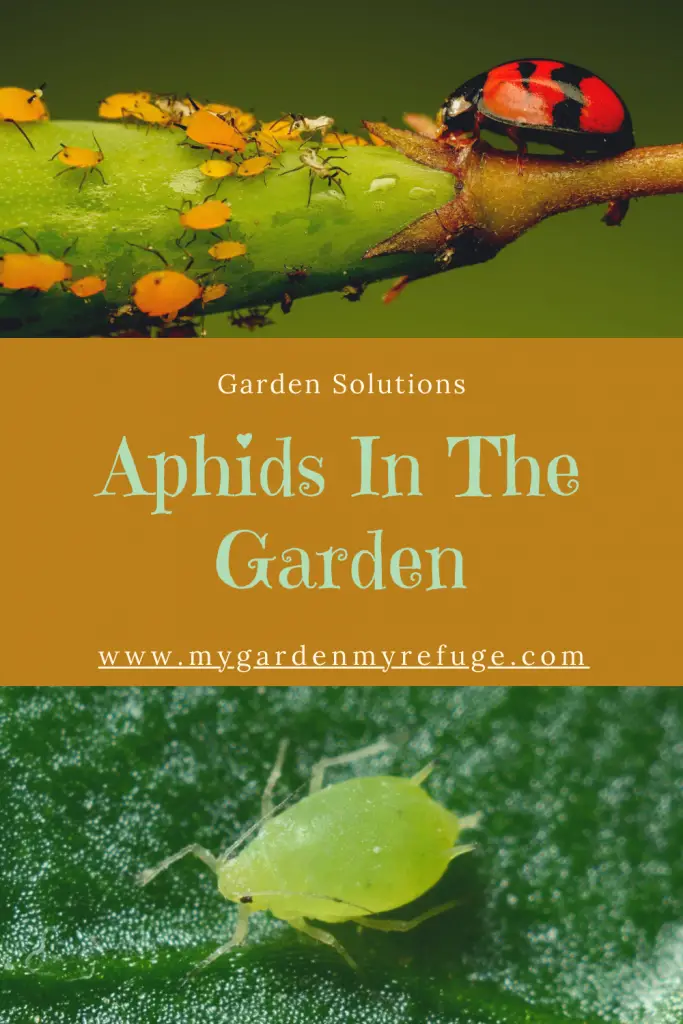
What are common aphids-host plants in the kitchen garden?
Aphids start emerging in the garden as early as spring. They can attack late cool-season crops, but they primarily infest warm-season crops.
- Beans
- Broccoli
- Cabbage
- Cucumbers
- Eggplant
- Kale
- Lettuce
- Tomatoes
- Peppers
- Zucchini
Some plants you may use as traps are nasturtiums, sunflowers, and marigolds.
Are aphids dangerous?
I can think of two main reasons for someone to ask this question. First, wondering if aphids can bite, causing a skin reaction. Fortunately, aphids live on plant sap and cannot survive on any other living. The second, is consuming aphid-containing vegetables safe? According to Mother Earth News, aphids are edible insects. That might not sound appetizing, but that only means you should not worry about any leftover aphids after washing your greens.
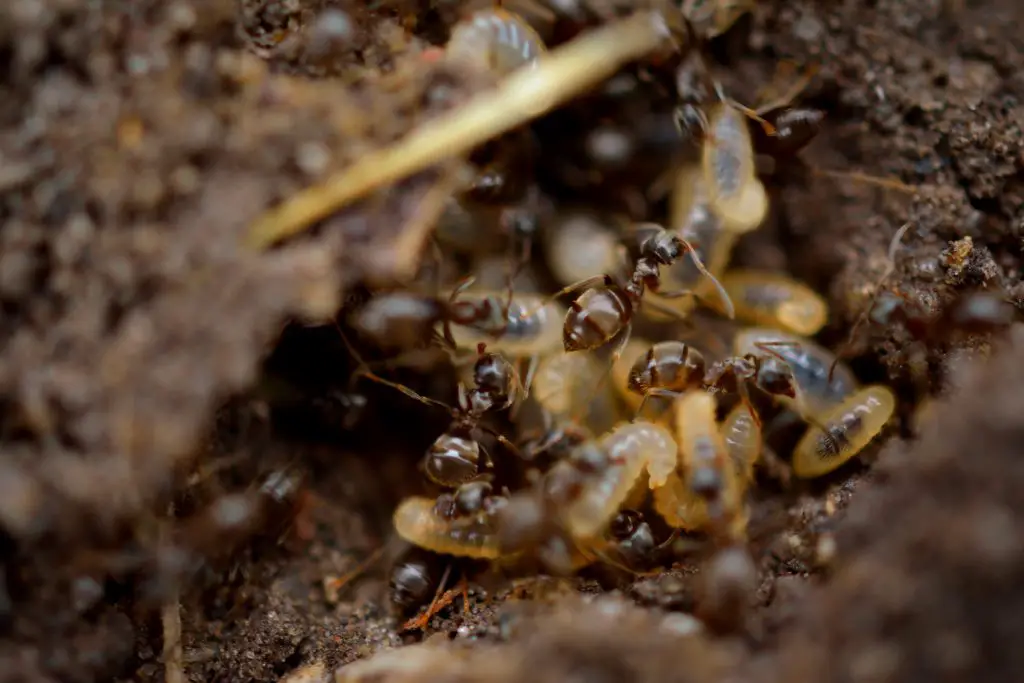
Do aphids spread disease?
Aphids can spread viruses from amongst plants. They can spread the disease fast since they require a short feeding time to obtain the virus. Then they transmit it to the next plant while trying their favorite host. Here is a document where you can find more about it.
What is the relationship between aphids and ants?
When I was little, I used to watch Ferdy the Ant. One scene engraved in my mind is where a group of ants was shepherding a herd of bugs to get some “milk” out of them. You might be thinking that’s just a cartoon, but the truth is that scene is very much real.
Ants and aphids have a symbiotic relationship. The honeydew secreted by aphids is a food high-quality food source for ants. Since ants are an organized community, one group, called farmer ants, takes care of the aphids. They protect them from predators like ladybugs and shelter them from rain. They also move them from one place to another, where they can feed them better.
Ants also play an essential role in maintaining the aphids’ lifecycle going. When the aphid colony reaches its end, ants carry a few eggs to their underground shelter. The eggs will overwinter there and hatch in the following spring. That’s how ants get to farm a new herd of aphids. Here is an interesting paper, by McGill University, about farmer ants.
